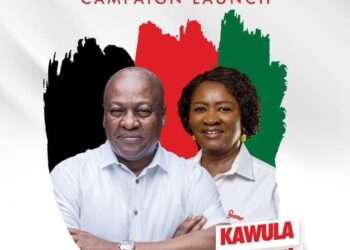Political conversations and discussions since the Vice President and the New Patriotic Party flagbearer, Dr Mahamudu Bawumia’s address on February 7, 2024, have turned into what many have described as a driver-mate analogy.
The Vice President, in his address, rightfully claimed credit for the positive achievements of the current government, such as digitalization and the early stabilization of the cedi but appeared to insulate himself from the economic difficulty the country has been plunged into with claims that his role as the head of the Economic Management Team was merely to offer advice to the government on economic policies.
While this has attracted strong condemnations and criticisms from the opposition National Democratic Congress and some leading members of the public, the supporters of the Vice President have vehemently argued in support of him.
Dr. Kwame Asiedu Sarpong, a research fellow at the Center for Democratic Development (CDD-Ghana) has critically examined the actions and rhetoric of the supporters of Vice President Dr. Mahmudu Bawumia in light of the ongoing debate surrounding the government’s achievements and failures.
Dr. Sarpong emphasized the need for political leaders to adopt a stance of accountability, drawing parallels with the analogy of a spare driver taking credit for a commercial vehicle’s profitability while distancing himself from its losses.
The central argument put forth by Dr. Sarpong revolved around the concept of collective responsibility and strongly contended that if the Vice President, Dr Bawumia is willing to claim credit for the positive aspects of the government’s performance, such as digitalization and the stabilization of the cedi, he should equally embrace responsibility for its shortcomings.
The researcher stressed the inconsistency of a leader selectively attributing success to its efforts while absolving himself any connection to failures.
“If you listen to the Vice President (in his speech), he takes credit for the good things that have happened under this government and rightly so. So he takes credit for digitalization, rightly so, and he takes credit for the early stabilization of the cedi, rightly so.
“So if he’s taking credit for the positives of this government, why is he walking away from the negatives?”
Dr Kwame Asiedu Sarpong
E-Levy And Dr Bawumia’s Apparent Silence
Moreover, Dr. Sarpong reacting to the current government’s introduction of the controversial e-levy, questioned the Vice President’s apparent silence during the deliberations, emphasizing that if the New Patriotic Party’s flagbearer held strong opinions on the matter, he should have expressed them openly at the time when the tax policy was proposed by his government.
The researcher further dismissed the notion that the Vice President’s approval of the e-levy is a nuanced position, insisting that leaders must be unequivocal in their stances on critical issues.
In addition, Dr. Sarpong challenged the Vice President’s approach, suggesting that if he seeks credit for the government’s successes, he must also accept responsibility for its failures, without attempting to distance himself from adverse outcomes.
“We all saw the fighting in Parliament and people being brought in ambulances to come and vote for the e-levy. We were told that e-levy was the solution to every problem that we had. We heard ministers in the cabinet who said that the Vice President agreed with the e-levy.
“Now we heard some of those ministers, including Kojo Oppong Nkrumah trying to explain that position to say he had a different opinion. But he stayed so that if we get a GHS100 exemption xyz, I don’t buy that. I don’t buy that”.
Dr Kwame Asiedu Sarpong
The researcher criticized the alleged inconsistency within the government’s narrative, particularly regarding the e-levy, where ministers initially asserted that Dr. Bawumia supported the measure and further dismissed attempts to explain such discrepancy and calls for a more transparent and accountable political discourse.
The views expressed by the research fellow at the Center for Democratic Development (CDD-Ghana) underscore the importance of political leaders standing by their convictions and taking responsibility for their stewardship.
The mate analogy particularly highlights the need for political leaders to ensure consistency and be forthright in their positions on crucial issues.
READ ALSO: UTAG Defer Strike Action Amidst Negotiations With Government





















